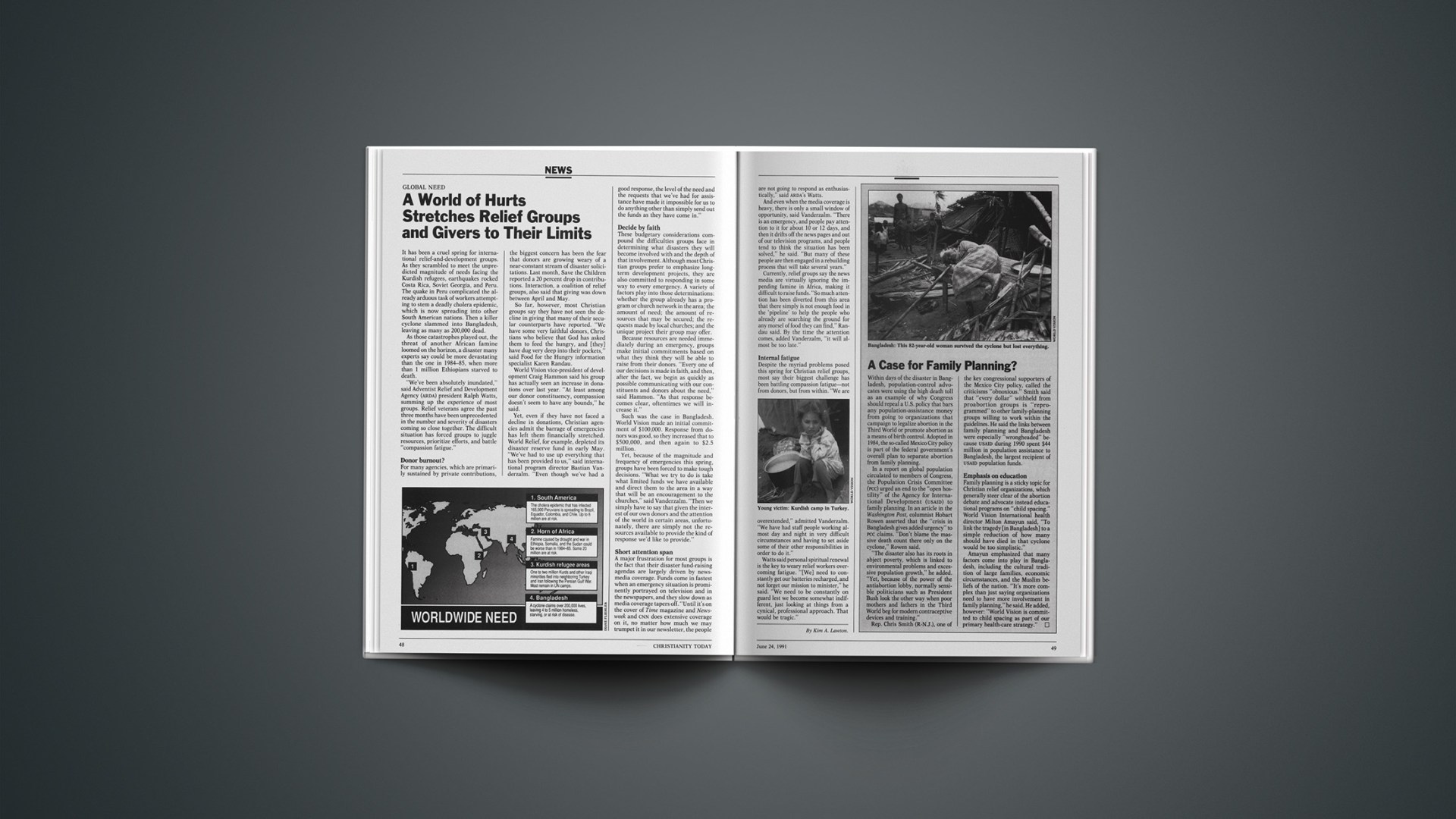Within days of the disaster in Bangladesh, population-control advocates were using the high death toll as an example of why Congress should repeal a U.S. policy that bars any population-assistance money from going to organizations that campaign to legalize abortion in the Third World or promote abortion as a means of birth control. Adopted in 1984, the so-called Mexico City policy is part of the federal government’s overall plan to separate abortion from family planning.
In a report on global population circulated to members of Congress, the Population Crisis Committee (PCC) urged an end to the “open hostility” of the Agency for International Development (USAID) to family planning. In an article in the Washington Post, columnist Hobart Rowen asserted that the “crisis in Bangladesh gives added urgency” to PCC claims. “Don’t blame the massive death count there only on the cyclone,” Rowen said.
“The disaster also has its roots in abject poverty, which is linked to environmental problems and excessive population growth,” he added. “Yet, because of the power of the antiabortion lobby, normally sensible politicians such as President Bush look the other way when poor mothers and fathers in the Third World beg for modern contraceptive devices and training.”
Rep. Chris Smith (R-NJ.), one of the key congressional supporters of the Mexico City policy, called the criticisms “obnoxious.” Smith said that “every dollar” withheld from proabortion groups is “reprogrammed” to other family-planning groups willing to work within the guidelines. He said the links between family planning and Bangladesh were especially “wrongheaded” because USAID during 1990 spent $44 million in population assistance to Bangladesh, the largest recipient of USAID population funds.
Emphasis On Education
Family planning is a sticky topic for Christian relief organizations, which generally steer clear of the abortion debate and advocate instead educational programs on “child spacing.” World Vision International health director Milton Amayun said, “To link the tragedy [in Bangladesh] to a simple reduction of how many should have died in that cyclone would be too simplistic.”
Amayun emphasized that many factors come into play in Bangladesh, including the cultural tradition of large families, economic circumstances, and the Muslim beliefs of the nation. “It’s more complex than just saying organizations need to have more involvement in family planning,” he said. He added, however: “World Vision is committed to child spacing as part of our primary health-care strategy.”










